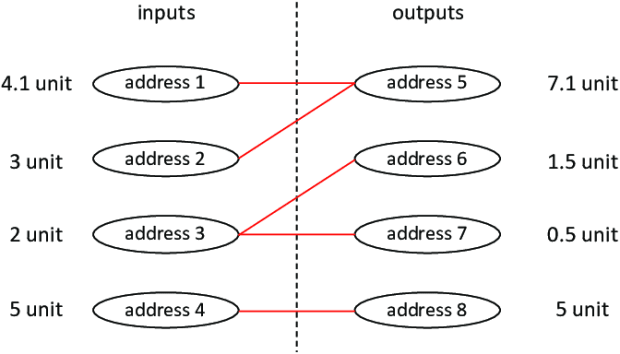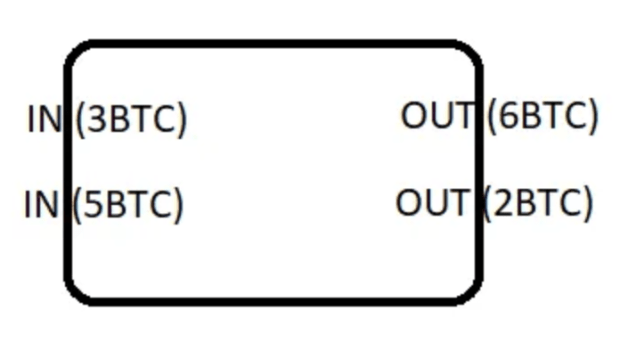Whereas Nostr is under no circumstances a privateness protocol, it may convey potential enhancements to Bitcoin privateness.

Nostr, quick for “Notes and different stuff transmitted by relays,” is a brand new communication protocol developed in 2021 by Lightning Community developer fiatjaf, which advanced out of LNBits developer Ben Arc’s try at a fully-decentralized market referred to as Diagon Alley. Versus different communication options, which largely perform by way of dumb shoppers and sensible servers, Nostr affords sensible shoppers and dumb servers, which heightens censorship resistance for customers.
In Nostr, all information is saved regionally with customers and merely distributed by way of relays, moderately than saved on central servers, corresponding to by way of Twitter. Within the case of social media, Nostr will increase censorship resistance, as customers are enabled to completely personal their very own content material and profiles. In gentle of latest controversies round Twitter’s censorship insurance policies, customers started migrating towards the federated communications answer Mastodon. Nevertheless, in Mastodon, possession over content material and profiles lies with these working the Mastodon servers customers signed up with. Whereas federations corresponding to Mastodon provide extra censorship resistance than centralized servers — as customers are capable of merely signal as much as one other server when censored — criticism has arisen round potential censorship on Mastodon by server homeowners.
In December 2022, the Nostr neighborhood obtained a 14 BTC grant from Twitter Founder Jack Dorsey, which introduced unprecedented consideration to the protocol. As purposes constructed on Nostr advanced, the cell shopper Damus jumped to primary in social networking on the iOS app retailer in China, leading to its ban. In an obvious effort to include the #MarchOffTwitter, Twitter CEO Elon Musk shortly banned the publication of Nostr-related content material, together with bans on different third-party platforms corresponding to Instagram, however to no avail.

Whereas Nostr is just not a privateness protocol per se — amongst different points, shoppers by default leak customers’ IP addresses to relays — the Nostr protocol may convey enhancements to Bitcoin privateness.
Bettering Privateness And Scalability Of BIP47
BIP47 is a Bitcoin Enchancment Proposal to create reusable cost codes whereas defending the privateness of customers for recurring funds. With out BIP47, customers have to tediously generate new addresses by hand to keep away from handle reuse. When a consumer reuses an handle for transactions, the consumer permits anybody watching the blockchain to simply cluster all transactions belonging to the handle reused and kind a graph of the consumer’s cost historical past and internet price. The prevention of handle reuse is due to this fact a privateness greatest follow in Bitcoin and already applied in lots of Bitcoin wallets by default. Nevertheless, when a consumer goals to ascertain recurring funds with one other celebration, corresponding to in a merchant-customer relationship, a frequent era of recent addresses will be inconvenient.
With BIP47, a buyer can generate a set of addresses to make use of for funds for the service provider. If a buyer purchases merchandise month-to-month, the service provider would want to ship the client an handle every month. With BIP47, the client creates a devoted cost code for the service provider, which capabilities equally to an prolonged public key. This permits the client to robotically generate new addresses for the service provider, as an alternative of the service provider needing to create addresses for the client.
BIP47 makes use of notification addresses, that are monitored by HD wallets for outputs. In a notification transaction, the service provider sends the client a blinded public key and chain code by way of the OP_RETURN area, along with a shared secret to maintain the shared addresses personal on the general public blockchain. This trade creates a number of points as a result of structure of the Bitcoin community. The primary two are financial: A notification transaction consists of 80 bytes, which may develop into costly for customers when charges on the Bitcoin community are excessive. Notification transactions, as well as, create unsendable outputs, which bloat the UTXO set over time. This will increase the computing load on Bitcoin nodes who, on the time*, have to retailer the whole UTXO set, which means each Bitcoin output that has not been used as a brand new enter to make sure the validity of transactions.
A notification transaction creates so-called poisonous change. When a consumer receives change from a notification transaction and spends the change to a 3rd celebration, anybody watching the blockchain is ready to correlate the consumer’s recurring funds to their non-recurring funds, even when addresses are usually not reused. A notification handle additionally solely exists as soon as for every pockets. If a service provider needed to ascertain recurring funds with 10 prospects, anybody watching the blockchain is ready to acquire perception into the service provider’s buyer base, as all 10 prospects would want to create notification transactions for the service provider to the identical notification handle.
As an alternative of utilizing notification transactions to trade cost codes between retailers and prospects, cost codes might be exchanged by way of Nostr. Versus different communication strategies, Nostr is appropriate for the trade of BIP47 cost codes as no central authority exists to probably censor the trade of messages. On the similar time, all direct messages on Nostr are encrypted by default, eliminating the necessity to compute shared secrets and techniques. By making use of BIP47 by way of Nostr, customers can keep away from the creation of UTXO set bloat by way of unspendable outputs and eradicate the correlation of recurring versus non-recurring funds in addition to the publication of buyer bases by the avoidance of poisonous change and the re-use of notification addresses.
*Observe: Storing the whole present UTXO set for Bitcoin nodes might probably be eradicated sooner or later by way of the implementation of UTreeXO, which shifts the burden of proving {that a} transaction spends a sound UTXO to the proprietor of the UTXO, decreasing the storage necessities from gigabytes to kilobytes.
Nostr Pay-To-EndPoint
In Bitcoin, blockchain evaluation companies function the heuristic of “frequent enter possession” to map transactions to identities. Inside this heuristic, a transaction containing completely different public keys used as inputs is classed as belonging to at least one individual. Because of its UTXO-based structure, by which inputs and outputs of transactions are linked, the Bitcoin protocol can be liable to subset sum evaluation. In subset sum evaluation, adversaries are capable of calculate the likelihood of inputs and outputs belonging to the identical entity, even when completely different public keys are used as inputs to at least one transaction. For instance, if a transaction has inputs of 1, 4, 7, 23 and 6, and outputs of 5 and 36, it may be deduced that enter 1 and 4 and inputs 7, 23 and 6 belong to the identical entity.

Pay-to-EndPoint (P2EP) is a privacy-preserving reinvention of Satoshi Nakamoto’s Pay-to-IP (P2IP) coded into the unique Bitcoin shopper. One type of a P2EP transaction are PayJoins, that are transactions designed to interrupt the frequent enter possession heuristic. In a PayJoin transaction, each the sender and the receiver contribute inputs to a transaction to interrupt the frequent enter heuristic. With PayJoins, customers trade details about what UTXOs will likely be used as inputs by way of any communication channel, corresponding to a Tor Onion, which capabilities as the tip level, to assemble a partially-signed bitcoin transaction (PSBT). As soon as each events have agreed to the phrases and signed the transaction, a PayJoin transaction seems similar to every other Bitcoin transaction on chain. As a result of concerned events act as each sender and receiver, a PayJoin transaction breaks the frequent possession heuristic in addition to subset sum evaluation: events might contribute inputs of three and 5, whereas the transaction generates outputs of 6 and a pair of.

The issue: PayJoin transactions are sophisticated to coordinate, as contributors need to be on-line on the similar time when utilizing a clearnet area or Tor Onion endpoints. If a consumer initiates a P2EP transaction and, for instance, closes their laptop or in any other case disturbs community connectivity, the transaction can’t be communicated. In Nostr, communication is asynchronous: customers fetch data from relays as soon as community connectivity is restored. Through the use of Nostr keys as an alternative of Tor Onions as endpoints for P2EP transactions, P2EP transactions might be coordinated extra simply.
One other implementation of P2EP is the much-debated LNURL. With LNURL, as an alternative of tediously needing to generate new invoices for every transaction, customers are capable of obtain a static endpoint pointing at an online server to robotically generate new invoices. Nevertheless, as a result of net servers are reliant on the worldwide Area Identify Service (DNS), customers of LNURL inevitably reveal their id to the internet hosting supplier, in addition to their IP handle to payees if no correct precautions are taken. Extensive adoption of LNURL would due to this fact be a detriment to the pseudonymity of the Lightning Community. As an alternative of utilizing an online server because the endpoint for LNURL, customers may use Nostr keys as endpoints for LNURL transactions to hide their identities.
Nostr For CoinJoins
Whereas a PayJoin is nice to interrupt the frequent possession heuristic in addition to subset sum evaluation, PayJoins are unable to supply privateness to each sender and receiver towards the cooperating celebration. PayJoins are primarily two-party CoinJoins, restricted to 2 contributors — because of this each sender and receiver are conscious of their very own inputs and outputs, leaving the inputs and outputs of their accomplice identifiable. Except a PayJoin is facilitated with CoinJoined transactions, customers threat revealing their pockets balances in addition to previous and future transactions to their PayJoin companions.
In anonymous-amount credential techniques corresponding to Wasabi Pockets’s protocol for CoinJoin coordination, WabiSabi, Nostr keys can perform as communication endpoints for the coordination of a CoinJoin transaction. This permits the sender and receiver of a CoinJoin transaction to trade the credentials wanted to take part in CoinJoin rounds, primarily enabling a type of discreet funds inside a CoinJoin. With the usage of Nostr keys as endpoints in CoinJoins, cooperating events stay unaware of their counterparties’ balances and transactions by hiding within the crowd. On the similar time, utilizing Nostr keys as endpoints for CoinJoin transactions helps PayJoin customers save on charges by facilitating funds straight throughout the CoinJoin, moderately than CoinJoining to facilitate the cost after.
One other use for Nostr in CoinJoins lies within the discovery of coordinators. Whereas most CoinJoin coordinators run behind Tor to obscure the id of CoinJoin contributors, customers are at the moment unable to simply uncover new coordinators to hitch except JoinMarket, a CoinJoin market focused towards extra superior CoinJoin customers. Whereas CoinJoin customers are in a position so as to add customized coordinators to Wasabi Pockets — a trivial process as straightforward as exchanging a URL within the backend — no approach exists to automate the method of updating coordinators as a result of lack of a platform for publication. As an alternative, to find new coordinators, customers should search social media and boards, corresponding to Reddit or Twitter, so as to add coordinators manually. Nevertheless, the publication of a coordinator service by way of social media or boards might pose a threat to coordination suppliers relying on the insurance policies utilized to the service, as sure pages might simply be shut down.
If Tor is an nameless remailer, which means a protocol facilitating the nameless forwarding and receiving of messages between friends, Nostr can perform as an nameless bulletin board. CoinJoin coordinators can publish their companies by way of a Nostr occasion sort, and CoinJoin wallets will be enabled to robotically pull from these relays to show inside their shoppers. The broadcasting of coordinator servers by way of Nostr, corresponding to facilitated by way of BTCPay’ Servers CoinJoin plugin and proposed within the Lightning-enabled CoinJoin software program Vortex, can eradicate the necessity to manually seek for and add CoinJoin coordinators in CoinJoin shoppers, serving to to additional decentralize the CoinJoin coordination panorama.
Circumventing IP Necessities With NOSTR
As touched upon beforehand, the Nostr protocol was initially conceptualized to comprehend a fully-decentralized market referred to as Diagon Alley. Because the Nostr protocol advanced, Diagon Alley grew to become the LNbits extension NostrMarkets: a Nostr-native market which permits retailers and prospects to run and work together with on-line retailers by way of relays. In NostrMarkets, prospects can subscribe to a product owner’s public key to fetch merchandise from relays as an alternative of accessing a service provider’s web site by way of a webshop. This will increase the censorship resistance of on-line retailers, as retailers are usually not depending on seizable web sites — moderately, a service provider’s store is hosted with all relays the store units as much as talk with. Even when the product owner’s server had been to be seized, its store may simply be arrange at a special location, as all merchandise are saved with relays on the Nostr community. NostrMarkets handles order and cost coordination by way of encrypted Nostr direct messages, whereas funds are facilitated by the Lightning Community.
Along with its censorship resistance, the LNbits extension NostrMarkets permits fully-anonymous marketplaces. As an alternative of exposing a service provider’s IP to the entire world, each retailers and prospects solely reveal their IPs to the relays they hook up with, which may simply be mitigated by working a shopper or store behind Tor. As an upside to completely working a store behind Tor, which makes a store solely accessible by way of the Tor browser and .onion net pages, NostrMarkets can run in any net browser or smartphone, enhancing the consumer expertise of privacy-preserving, client-server communications. As a result of funds are negotiated by way of encrypted Nostr direct messages and facilitated by way of the Lightning Community, funds in NostrMarkets stay comparatively personal so long as the store’s Lightning node runs behind Tor, as a cost coordination direct message is indistinguishable from different direct messages in Nostr.
One other strategy to circumvent the requirement of IP addresses in server shopper communication is NOSTREST. REST, quick for “representational state switch,” is a part of the software program structure of the world huge net, used to facilitate communication between servers and shoppers by way of GET, POST, PUT, DELETE and PATCH requests. However, when a shopper sends a REST request to a server, IP addresses are revealed, probably revealing personally-identifiable data. On GitHub, __escapee__ proposed a REST API bridge constructed on Nostr, referred to as NOSTREST. Through the use of Nostr keys with out identification headers, each customers and server operators don’t have to know the IP addresses of their counterparts. A NOSTREST implementation can due to this fact enhance the privateness of Bitcoin purposes utilizing REST as servers don’t want the shoppers’ IP addresses.
One such instance might be the working of custodial Chaumian e-cash mints, a type of anonymous-amount credential techniques. In an e-cash mint, the mint operator doesn’t know the balances or worth exchanged by its customers. Nevertheless, as a result of present structure of REST, it does study the consumer’s IP handle until working behind Tor by default, corresponding to within the e-cash system Cashu. However implementing and managing Tor assist is tedious. With the NOSTREST bridge, initiatives can simply protect the privateness of their customers. By working an e-cash mint behind Tor utilizing NOSTREST to speak between server and shoppers, communication will be facilitated asynchronously, whereas each server operator and consumer solely study one another’s public keys, eliminating the danger of identification by way of IP.
It is a visitor put up by L0la L33tz. Opinions expressed are completely their very own and don’t essentially mirror these of BTC Inc or Bitcoin Journal.









![Methods to Purchase DeFi Pulse Index on CoinStats [The Ultimate Guide 2022]](https://bitrrency.com/wp-content/uploads/2022/05/DeFi_Pulse_og-100x70.png)

